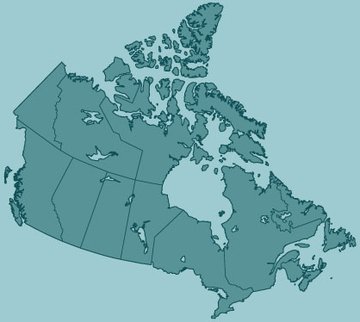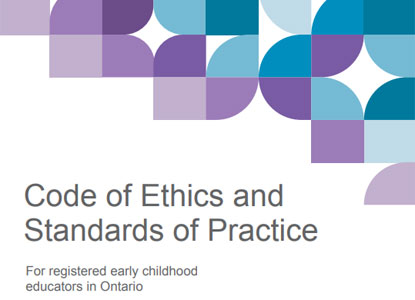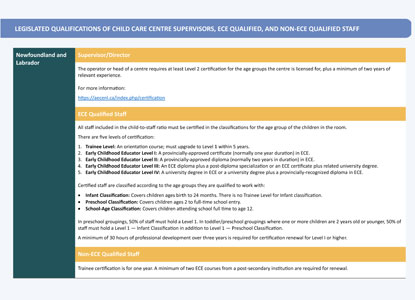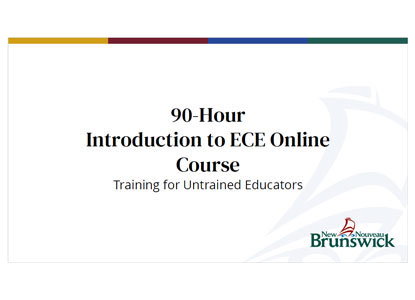2026: Summer Institute on Early Childhood Development
Power and Potential: Reframing the ECE Workforce as a Force for Social Change
Check back for more information about the 2026 Annual Summer Institute.

A national effort to strengthen early learning and child care system building through workforce-focused policy knowledge. As an ECE Workforce Knowledge Hub, we convene expertise in educator competencies, professional learning, inclusion, decent work, labour economics, immigration, equity, and knowledge mobilization. Our role is to provide governments with evidence-informed guidance and practical tools to advance effective and sustainable workforce policies.

Power and Potential: Reframing the ECE Workforce as a Force for Social Change
Check back for more information about the 2026 Annual Summer Institute.

This chart assesses the adequacy of Early Childhood Educator (ECE) wages by region. It compares government subsidized wage rates for qualified educators working in licensed group child care centres participating in the Canada-Wide Early Learning and Child Care plan with the most recently available cost of living in their communities.


This video highlights the critical role of early childhood educators in delivering quality early learning and child care in Muskoka. It highlights their dedication and the positive impact they have on children's development and growth, emphasizing their contributions to the community and the importance of supporting the early childhood education profession.

The Atkinson Centre blog highlights the challenges faced by college faculty who train early childhood educators, including low wages, job insecurity, and limited professional support. Part-time instructors often juggle multiple jobs without the stability or benefits of permanent positions. The blog calls attention to these issues and advocates for systemic change.

This Atkinson Centre blog highlights strategies to strengthen Canada’s ECE workforce from the 20th Annual Summer Institute on Early Childhood Development. It examines staffing shortages, low wages, and gender pay gaps, emphasizing political will, government support, and funding. Insights from the 2023 ECE Report underscore the need for equitable policies and sustainable investments.


The Code of Ethics and Standards of Practice outlines the professional expectations, skills, and values for Registered Early Childhood Educators (RECEs). It defines the scope of the profession and informs both RECEs and the public about their responsibilities. As regulated professionals, RECEs are expected to uphold integrity and adhere to these standards both in their workplace and within the community.

This table provides a comprehensive collection of Canada-wide legislated qualifications of child care centre supervisors, ECE qualified, and non-ECE qualified staff. It reflects the latest updates as of November 2024.

This session highlights a provincial initiative supporting the ECE workforce and expanding child care access. It features the 90-Hour Introduction to ECE Online Course for untrained educators. Lindsay Webb, Acting Director of the Department of Education and Early Childhood Development, discusses how New Brunswick offers 90 hours minimum of child development training for child care staff without post-secondary ECE credentials.